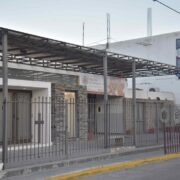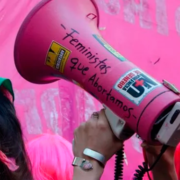Legislative treatment of the law on Voluntary Termination of Pregnancy begins
The discussion will begin in the Chamber of Deputies, with informational meetings of the committees throughout the week. After the long weekend the voting would come in the enclosure. It will be discussed on the basis of the bill sent by the Executive Power two weeks ago, and the bill presented by the National Campaign for Safe and Free Legal Abortion in 2019. What does each bill say?
“Below, we offer a google translate version of the original article in Spanish. This translation may not be accurate but serves as a general presentation of the article. For more accurate information, please switch to the Spanish version of the website. In addition, feel free to directly contact in English the person mentioned at the bottom of this article with regards to this topic”.
This Tuesday, December 1, the plenary of the Criminal Legislation, General Legislation, Women and Diversities and Health commissions will receive members of the Executive Power (from the Health, Social and Legal and Technical Development portfolio). Then there will be presentations by scientists, sanitarians, health professionals and jurists for and against the law, with the expectation of reaching an opinion next Friday.
After having announced it at the opening of the legislative sessions, on March 1, the Executive Power finally sent the bill for the Voluntary Interruption of Pregnancy to the National Congress. It did so together with the bill that establishes the so-called “Thousand Days Plan”, which proposes State assistance to pregnant women in vulnerable situations during pregnancy and up to the first three years of the child’s life.
In this way, the debate on the legalization of abortion was once again enabled, one of the main points on the human rights agenda of our country since its discussion in Congress in 2018, which culminated in August with the rejection in the Senate. The Campaign for Legal, Safe and Free Abortion had presented its project in May 2019, which still has parliamentary status, so it is expected that during the debate in commissions both will be taken into consideration.
In this document we present a comparative analysis of both projects, contrasting them with the opinion that had been approved by the Chamber of Deputies in 2018. We consider that the National Congress has the duty to give the legislative discussion with the lessons learned at that time , and taking both projects as input.
Congress will again have the opportunity to enact a law that consolidates long-delayed human rights, respecting the international standards that regulate this matter to which the Argentine State is bound, marking an advance in the protection of the rights of women and pregnant persons in our country.
A law that guarantees the Voluntary Interruption of Pregnancy will allow us to advance in the construction of a more just, egalitarian and respectful of human rights society.
Contact






